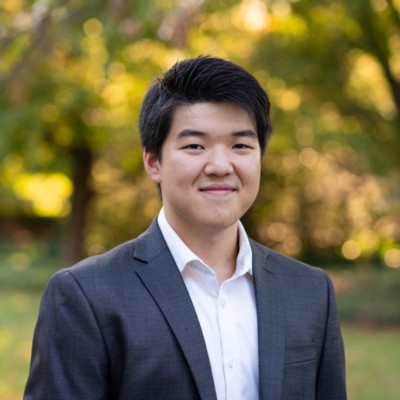
In the spirit of upcoming senior thesis deadlines, I wanted to interview a senior currently working on their thesis. As an underclassman that doesn’t have to worry about any form of independent work yet and a COS BSE major, one of the only majors exempt from the senior thesis requirement, I’ve always been curious about the thesis writing process and what a BSE senior thesis entails. As a part of our Seasonal Series, I am excited to present my interview with Eric, as he shares his ORFE senior thesis, his interest in finance, and his advice for rising seniors.
Shannon Yeow (SY): What is your thesis about?
Eric Ahn (EA): My thesis is called “Trading Options Around Earnings Uncertainty Risks,” focused on trading options, such as calls and puts, around earnings events that happen every quarter. An option is a financial instrument that gives you the option, not the obligation, to pay a certain amount for that underlying asset. More specifically, a call option gives you the option to buy the stock in the future at a certain price that you designate beforehand, and a put option is the opposite, where you can sell at a pre-designated price in the future. Most of the volatility of a stock occurs during these earnings events because an abundance of financial information is made available. As such, my entire project is centered on predicting how much uncertainty is found in the option, and how we can use that as a tool for trade.
SY: Why did you choose to research this topic?
EA: I really enjoyed taking ORF 335: Introduction to Financial Mathematics—a lot of the class is on pricing options. This past summer, I was a Trading Intern at Citadel, trading options on a team that focused on earnings. When it came to my thesis, I thought it would be super interesting to think about this topic more quantitatively and look further into trading options around earnings.
SY: How did you become interested in this topic?
EA: I would say there’s two different types of finance. There’s regular fundamentals which involve looking at the company’s financials and its validity in the future. Then, there’s the quantitative side, centered on analyzing straight-up market data and trying to predict prices. I wanted to meld the two types of finance, which is essentially what my thesis is doing: using all this quantitative data, can I use the fundamentals to back it up?
SY: How did you narrow your thesis to your current topic?
EA: For an ORFE thesis, you have to take a class—you’re forced to whittle stuff down and work on it. It made it very clear from the start what was going to be feasible and what was not feasible for the next 9 months. I was able to throw topics out there, and understanding my skill set, knowing what kind of data was available, and reading the current research really helped whittle down the scope of my project. Building upon current research also made it easy to focus on more niche topics. It’s an ever changing process. You keep working on it, and if you’re working faster than expected, then you can do more; if not, you can always scale it back.
SY: What has your overall process been in developing your thesis?
EA: The ORFE theses, in my opinion, are very streamlined and straightforward. You find data, you select what kind of models you will use, choose how you develop the models, decide what factors you’re going to use, evaluate the performance of the model, and talk about your findings.
SY: If you had one piece of advice about senior theses, what would it be?
EA: The biggest thing is really to just work ahead. I was very lucky with the ORFE class—I had set deadlines in the forms of drafts, a midterm, and a final. If you don’t have deadlines, set deadlines for yourself, and treat it like a real deadline.
Interview responses have been edited for clarity and length.
—
I had a great time interviewing Eric, and it was insightful to see how specific classes and outside opportunities could contribute to one’s senior thesis. Now, going into my junior year, I feel much more excited for my independent work, and potentially even opting in to write a senior thesis!
I hope this interview provided you with more direction or insight. I hope you are as excited for the next article in the Seasonal Series as I am! Wishing you the best!
— Shannon Yeow, Engineering Correspondent

